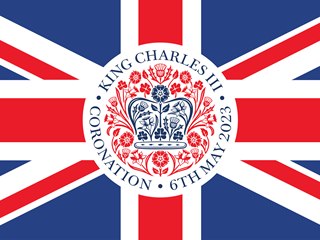
Discover what's happened to currency, inflation and house prices between the coronations of 1953 and 2023.
When Queen Elizabeth II was crowned on 2 June 1953, tens-of-millions of people in the UK tuned in to watch the first fully televised coronation. Much has changed since then, and with King Charles III to be crowned at Westminster Abbey this Saturday, we take a look at what’s happened to currency, inflation and house prices in the 70 years between the two events.
One major difference is that in 1953 the UK was using pre-decimalised currency: pounds, shillings and pence.
This system was used until 1971, before it was replaced with the system used today.
Back in 1953, if you decided to take a holiday to the US under President Dwight D Eisenhower you would find a single pound would convert into $2.80 USD. At the time of writing, £1 is worth $1.26 USD.
In June 1953, the Bank of England Base Rate stood at 4.00%. Currently at 4.25%, the base rate at the time of King Charles’ coronation won’t be much different. This follows 11 consecutive rises to the base rate, with the Monetary Policy Committee next reviewing it on Thursday, 11 May.
As for inflation, or the Consumer Price Index (CPI), this hit 2.7% in June 1953 according to calculations from the Office for National Statistics (ONS). This is in contrast to where it stands today at 10.1% (CPI), or this year’s peak of 10.4%.
In both instances rising food prices remained one of the main driving forces behind inflation. Due to rising prices, the value of your money has also eroded. A pound in 1953 would equate to £22.63 in today’s money.
Homeownership increased from 1953 onwards at a faster rate than in previous decades, according to The National Archives. By 1971, the same percentage of households owned their own home as rented.
While the average house today costs £258,115, in 1953 average house prices were £1,891, according to Nationwide BS.
In today’s money this equates to roughly £43,000.
Many of the high street banks we use today predate Queen Elizabeth II’s ascension to the throne. Barclays can be traced back to 1690, Royal Bank of Scotland to 1727 and Lloyds Bank to 1765. During the 19th century, HSBC was founded in 1865, Nationwide BS and Coventry BS in 1884 and Leeds BS in 1875.
Harpenden BS was established in 1953 – the year of Queen Elizabeth II’s coronation. Teachers BS arrived over a decade later in 1966.
Information is correct as of the date of publication (shown at the top of this article). Any products featured may be withdrawn by their provider or changed at any time. Links to third parties on this page are paid for by the third party. You can find out more about the individual products by visiting their site. Moneyfactscompare.co.uk will receive a small payment if you use their services after you click through to their site. All information is subject to change without notice. Please check all terms before making any decisions. This information is intended solely to provide guidance and is not financial advice. Moneyfacts will not be liable for any loss arising from your use or reliance on this information. If you are in any doubt, Moneyfacts recommends you obtain independent financial advice.